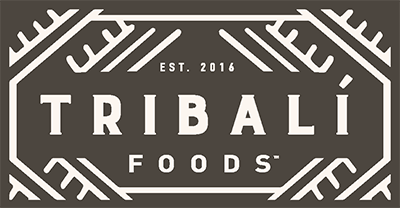
Many of us may find ourselves perplexed when it comes to protein. We ask ourselves questions like, “Why is protein so important? How much protein do I actually need every day? When should I consume protein? How do I choose a high quality protein source?” If you find yourself asking any of these questions, we have some answers that may be helpful. Consider this the ultimate guide to all things protein.

The Importance of Protein
Protein is considered the building block for life because every cell in the human body contains protein. Protein helps repair cells and make new ones, which is why protein is critical for development and growth, especially in athletes, children, teenagers and pregnant women. The basic structure of protein is composed of amino acids, which the body needs in large amounts to maintain good health, so even if you aren’t an Olympic athlete, protein is an important macronutrient that is essential for proper health and optimal nutrition.
How Much Protein Do I Need?
A common question surrounding protein is “How much protein do I actually need?” Everyone's different, so the amount of protein you need in your daily diet will roughly depend on your overall caloric needs. The daily recommended intake of protein for an average healthy adult is 10%-35% of your total calories each day. Extremely active adults and athletes who always find themselves in the gym will need additional protein to recover from intense physical activity, but when in doubt, always consult a licensed dietitian or trusted medical professional to learn more about your own unique protein needs.
When Should I Eat Protein?
Depending on your daily needs, it may be easiest to include protein throughout the day at each meal instead of enjoying it all at once. For example, add one or two Chicken and Apple Breakfast Sliders to your breakfast or brunch, add a Thai Turkey Patty to your lunchtime Salad Bowl and include a Mediterranean Beef Patty on that dinnertime recipe for Sun Dried Tomato Pesto on Parsnip Noodles.
Another factor to consider when deciding when to eat protein depends on your overall health and wellness goals like building muscle, preventing muscle loss and weight loss.
Building Muscle
If your overall goal is to build muscle and strength, consuming enough protein, especially more than what your body breaks down naturally during resistance training or weight training, is essential. Consuming protein pre or post workout is a controversial topic in the health and wellness community, but just like everyone’s protein needs vary, so do preferences on when to consume protein.
For the average person, consuming the proper amount of protein is more important than the timing of consuming the protein, but according to the International Society of Sports Nutrition, consuming protein any time up to two hours post workout is ideal for building muscle mass. Active individuals may consider taking a pre-workout supplement before their workout, while others may find they workout better in a fasted state. Listen to your body and find what works best for you.
Tip: It’s important to consider the type of workout you are performing. Lower impact activities like walking or yoga may require less protein whereas more intense forms of activity (think things like high intensity workouts, running or weight lifting) will most likely require a higher amount of protein for proper recovery.
Preventing Muscle Loss
Maintaining muscle is incredibly important as we grow older. Research shows we lose 3-8% of our muscle mass each decade after the age of 30. To prevent muscle loss, it’s recommended to spread protein intake out evenly throughout the course of the day, which means including 25-30 grams of protein per meal.
Weight Loss
If your goal is to lose weight, protein is an important nutrient to include in your daily diet. Eating a high protein diet can help increase metabolism and reduce overall appetite This means, consuming protein-rich meals and snacks may reduce eating fewer calories overall, which can ultimately lead to weight loss.
How to Choose a Protein
When choosing protein, look for high quality options that come from brands and companies that use ethical practices and stick to transparent sourcing methods. Some great examples of protein include:
- Beans such as black beans, garbanzo beans, kidney beans, pinto beans and split peas
- Beef. Try these Mediterranean Beef Patties or these Umami Beef Patties for an added kick of unique flavor.
- Bison
- Chicken like Chipotle Chicken Patties.
- Eggs
- Fish or shellfish
- High quality protein powder or supplement. One of our personal favorites is Tera’s Whey, which is made with minimal ingredients. Whatever protein supplement you prefer, take the time to do some research and make sure the ingredients are coming from high quality sources.
- Lentils
- Low fat dairy
- Nuts and seeds including almonds, hazelnuts, mixed nuts, peanuts, peanut butter, sunflower seeds and walnuts.
- Pork
- Tempeh, tofu or soy products
- Turkey
- Whole grains like quinoa or wheat germ (Nothing refined or “white” products).
Need some more protein options? Here are 20 delicious high protein foods.
Protein doesn’t have to be complicated. Simply consider factors like your activity level, age and overall health goals, then select high quality protein sources to support your overall goals and healthy lifestyle. Remember, 10%-35% of your total caloric needs should come from protein, so space it out and enjoy a little at each meal throughout the day. Also, be sure to pair your protein of choice with a little quality fat (i.e. avocado, nuts, seeds) so you can stay satisfied and satiated for longer. Happy eating everyone!

HELLO@TRIBALIFOODS.COM >
your mind — we’re glad to help!
hello@tribalifoods.com
your mind — we’re glad to help!
hello@tribalifoods.com








